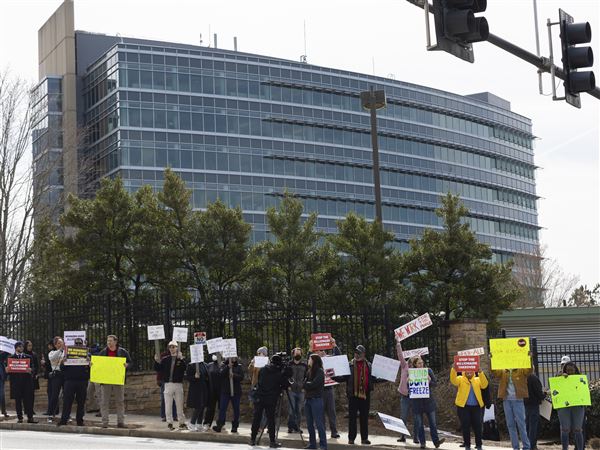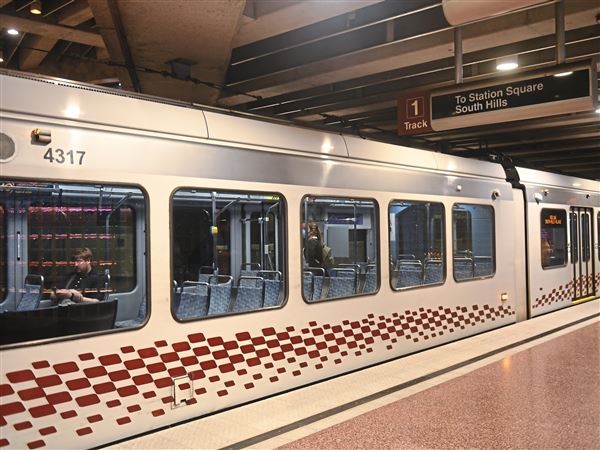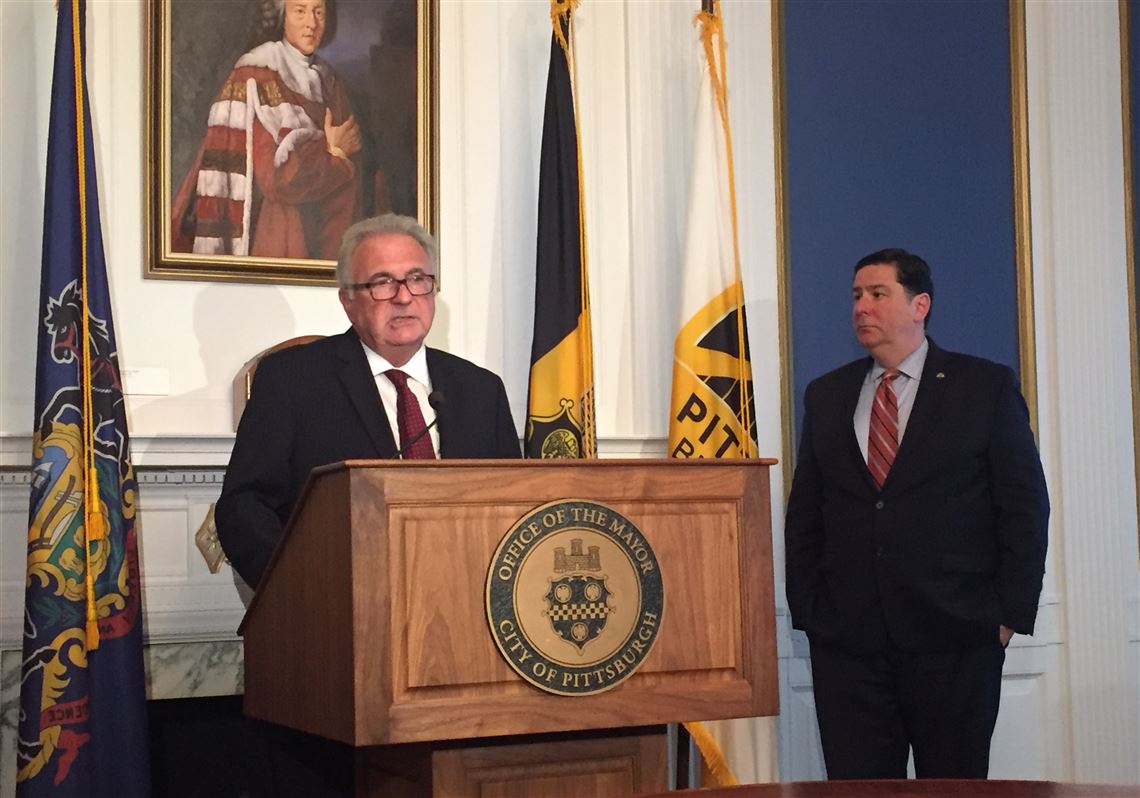The Pittsburgh Water and Sewer Authority and Mayor Bill Peduto teamed up Friday to provide an update on water quality and long-standing customer service and billing issues.
The authority provides free lead testing at concerned customers’ taps. Of nearly 400 such water samples recently tested, the authority said it found no lead in 57 percent of those homes, while 5 percent — or 20 homes — were above the federal action level of 15 parts per billion and one reached four times that.
PWSA’s interim executive director, David Donahoe, said the authority knows through testing that water leaving the plant in Aspinwall is lead-free, so the problem must be in service lines, for which customers are responsible.
“The water leaving the plant is essentially free of lead, so this does happen in the service-line area. So that’s where the problem needs to be addressed,” he said.
In its 2015 annual water quality report, the authority noted that lead levels reached 14.8 parts per billion. That’s risen from 2 parts per billion in 1999 to 14.7 parts per billion in 2013, as shown by mandatory testing every three years, which the authority is currently undergoing.
Water systems must monitor drinking water at customers’ taps, and when lead appears in excess of 15 parts per billion in more than 10 percent of customer samples, a system must work to control corrosion and inform the public, per the federal Lead and Copper Rule. Those whose levels are above 15 parts per billion are counseled in mediation plans, such as changing a lead service line, using filters and flushing the lines, Mr. Donahoe said.
“What you’re seeing is an antiquated, over-100-year-old system that is starting to show its age, and that’s the reality we have to work in,” Mr. Peduto said. “But the fact is, we can work in it, and we can solve it.”
Among the 393 voluntary tests returned to customers, lead was not found in 225; 72 fell between 1 and 5 parts per billion; 52 were between 5.1 to 9.9 parts per billion; 24 barely missed the action level at 10 to 14.9 parts per billion; and 20 homes were above 15 parts per billion, according to the PWSA.
“If you have one above that level, then you ought to say as a water provider, ‘Well, am I really doing my part here? Am I really doing what needs to be done?’ ” Mr. Donahoe said.
Mr. Peduto said customers must be informed.
“I think the worst thing you can do as a government is not let people understand and try to hide information. So we’ll do it the way Pittsburghers do everything: We’ll address our problems and hit them head-on,” he said.
To combat lead levels, PWSA is testing five chemicals to prevent corrosion, which causes lead to leach from old pipes, has created a water quality advisory board and adopted a revised policy on lead service lines.
Mr. Donahoe also addressed ongoing billing problems, including overcharges of thousands of dollars on some customers’ bills and bills that failed to arrive for other customers.
Those problems stemmed from the “marriage” of a new billing system and new meter-interface units that use wireless technology to relay usage information, leading to overwhelmed customer-service staff, he said.
“All-in-all, there has been significant progress made. … I do not want to put the sign up, ‘Mission Accomplished,’ because it is not over yet,” Mr. Donahoe said.
Before Mr. Donahoe came out of retirement in March to lead the authority, customers had to wait five minutes to talk to a representative and up to 12 percent of them just hung up.
But by June, calls were answered within 30 seconds and only 2 percent of callers gave up, he said.
PWSA’s 111,000 customers fall into three categories: Those that receive both water and sewer services, others that just have sewer service, and municipal customers.
Billing was timely and normal in April, May and June for water and sewer customers, and about 400 of the authority’s 1,000 large commercial customers have had their meters replaced, Mr. Donahoe said.
Sewer-only customers present “the most challenging issue” because the authority does not own the data needed for billing, Mr. Donahoe said. Bills can be paid incrementally depending on how much a customer owes.
Lexi Belculfine: lbelculfine@post-gazette.com or 412-263-1878. Twitter: @LexiBelc.
First Published: July 1, 2016, 9:50 p.m.
Updated: July 2, 2016, 5:16 a.m.

















